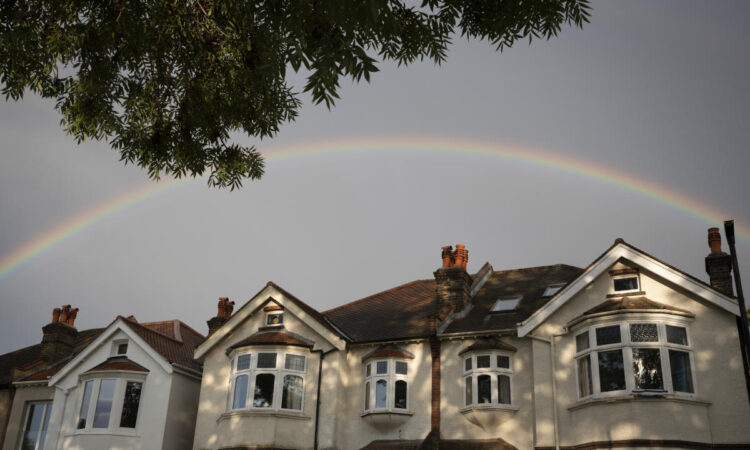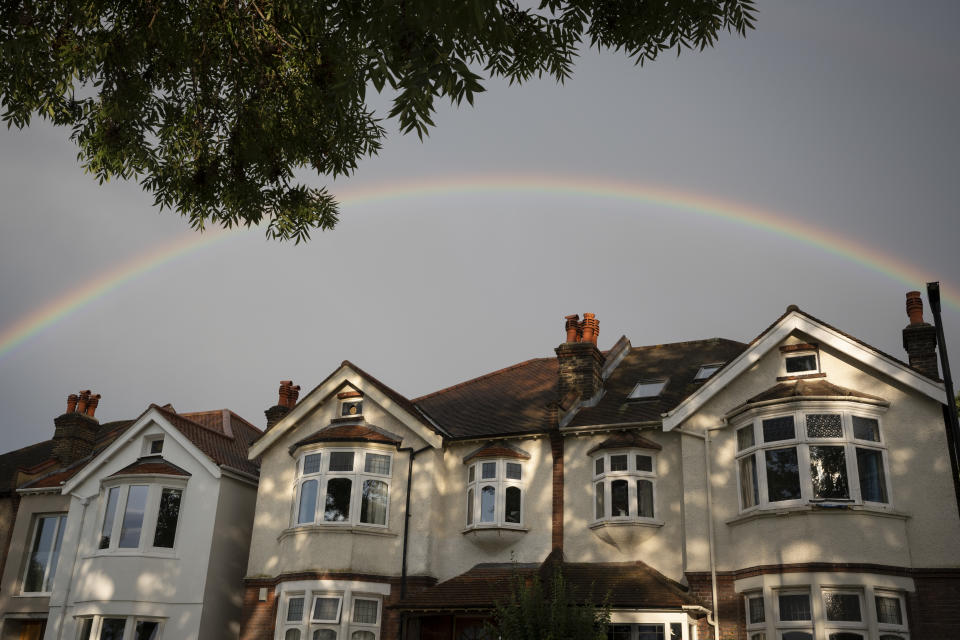

UK homeowners are renting out a room in their house as a way of making some extra money amid the cost of living crisis that has pushed mortgage rates to record highs.
Over one in every 10 (12%) London homeowners have started renting out a room in their house in the past year to generate additional income, according to Barclays Consumer Spend report.
The trend is not exclusive to the capital, as some 3% of homeowners across the UK have also rented out a room in their property to make a bit more money.
UK homeowners have been particularly hit by cost of living woes, with the average rate on a two-year fixed deal currently stands at 5.74%, while for a five-year deal, rates are around 5.24%, according to figures from Uswitch.
Borrowers would need to spread their home loans over more than 70 years to be able to afford the same mortgages on offer just two years ago, banks have said.
Mortgage rates have risen substantially as the Bank of England increased interest rates to a 16-year high in a bid to tackle inflation.
The data from the Barclays report showed that one in six (16%) aren’t confident about their ability to meet their mortgage or rental payments, and 18% of those with mortgage or rent payments are adjusting their spending habits to cope with rising housing costs.
Still, consumers’ confidence in their general household finances remained steady in March, at 67%.
Jack Meaning, chief UK economist at Barclays, said: “With an expectation that the Bank of England will cut interest rates from June, and banks responding by reducing mortgage rates, our research suggests that the housing costs that have been a drag on consumers for over a year are on the cusp of a turn, and will become a boost to spending from H2 and beyond. Today’s data shows this transition happening in real time.”
Higher mortgage rates have also hit the property market, as house prices fell for the first time in six months in March amid rising mortgage rates, according to Britain’s biggest mortgage lender.
A typical home now costs £288,430, around £2,900 less than last month, said Halifax.
Household spending such as DIY and electronics fell 5.2% in March, with one in six (16%) holding off home renovations due to current economic pressures.
Bad weather hits consumer spending
Consumer card spending growth flatlined in March as wet weather dampened both retail and restaurant sales.
Retail spending remained almost flat at 0.7%, brought down by falling in-store spending. Face-to-face retail (excluding groceries) was down 2.1% and clothing fell -1.8%, as spring showers deterred shoppers from visiting the high street. Meanwhile, restaurants had another challenging month, down 12.6%, consistent with the fall witnessed in February (13.4%), Barclays said.
This comes as 45% of consumers said they were continuing to rein in discretionary spending, with the majority (53%) of this group cutting back on clothing and accessory purchases, and nearly half (47%) spending less on dining out.
Britons are more concerned than ever about the cost of every day items, with concerns about general inflation shooting up to 87%.
Karen Johnson, head of retail at Barclays, said: “Retailers were braced for a more subdued start to 2024, and recent figures are in line with expectations. The wet weather has been a key factor in the slowdown in discretionary spending, as it’s meant fewer visits to the high street and to hospitality venues.
“However, in spite of this initial lull, many retailers are confident that spending will rebound in the coming months, particularly in anticipation of better weather, the energy price cap drop, an uplift in the National Minimum Wage, and the buzz around major events such as Taylor Swift’s Eras Tour and the Paris 2024 Olympics.”
Easter helps retail sales after difficult start to year
A separate report by the British Retail Consortium (BRC) and KPMG Retail showed a more optimistic view on the UK retail sector in March.
Total UK retail sales were up by 3.5% on last March, above the three-month average of 2.1% and the 12-month average of 2.9%, according to the British Retail Consortium (BRC)-KPMG Retail Sales Monitor.
Food sales increased by 6.8% year on year, driven by Easter falling unusually early and the subsequent uplift ahead of the long weekend.
Easter also boosted sales of products such as cookware and tableware, as people readied themselves to host family and friends. Home textiles such as throws and pillows were also popular as consumers sought to spruce up their homes ahead of spring.
Elsewhere, wet weather dampened sales of garden furniture, barbecues, DIY products, and clothing and footwear.
Online sales continued to slide, falling by 1.4% despite strong performances in home accessories, health, beauty, and homewares.
BRC chief executive Helen Dickinson said: “After a difficult start to the year, retailers are hopeful that with warmer weather around the corner, consumer confidence will spring back up.
“A strong retail industry can boost investment across our towns and cities, and as we gear up for a general election, it is essential the next government recognises this and rethinks the burdensome costs imposed on retailers.”
Watch: London house prices pull ahead in reversal of ‘race for space’
Download the Yahoo Finance app, available for Apple and Android.






